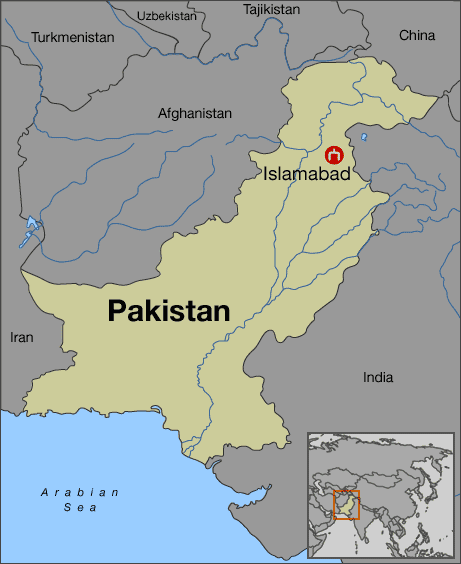Pak Taliban being ceded too much authority, say critics of truce
 Islamabad, Feb. 17 : Despite the Pakistan Government's insistence that the new legal system in the Swat Valley is consistent with existing civil law, there are some people in the country who see the accord as representing the ominous power of the militants, and fear that it could spread into the heartland of Pakistan, including the country's most populous and wealthiest province, Punjab.
Islamabad, Feb. 17 : Despite the Pakistan Government's insistence that the new legal system in the Swat Valley is consistent with existing civil law, there are some people in the country who see the accord as representing the ominous power of the militants, and fear that it could spread into the heartland of Pakistan, including the country's most populous and wealthiest province, Punjab.
"The hardest task for the government will be to protect the Punjab against inroads by militants," the Dawn quotes I. A. Rehman, a member of the Human Rights Commission, as saying in an article for the newspaper.
"Already, religious extremists have strong bases across the province and sympathizers in all arenas: political parties, services, the judiciary, the middle class and even the media," the New York Times quotes him, as saying.
"For its part, the government is handicapped because of its failure to offer good governance, guarantee livelihoods and restore people's faith in the frayed judicial system," he adds.
"This means you have surrendered to a handful of extremists. The state is under attack; instead of dealing with them as aggressors, the government has abdicated," said Athar Minallah, a leader of a lawyers' movement that has campaigned for an independent judiciary.
Shuja Nawaz, the author of "Crossed Swords," a book on the Pakistani military, said that with the accord, "the government is ceding a great deal of space" to the militants.
Provincial officials said the accord in Swat was struck with Maulana Sufi Muhammad. He is the father-in-law of Maulana Fazlullah, a deputy to Baitullah Mehsud, who is the head of the umbrella group for the Taliban in Pakistan.
The government has said that it would accept a system of Islamic law in the Swat valley and agreed to a truce, effectively conceding the area as a Taliban sanctuary and suspending a faltering effort by the army to crush the insurgents.
The concessions to the militants, who now control about 70 percent of the region just 100 miles from the capital, has been severely criticized by Pakistani analysts as a capitulation by a government that is desperate to stop Taliban abuses.
The accord comes less than a week before Pakistan army chief, General Ashfaq Parvez Kayani's visit to Washington to meet Obama administration officials and discuss how Pakistan could improve its tactics against what the American military is now calling an industrial-strength insurgency there of Al Qaeda and the Taliban militants. (ANI)